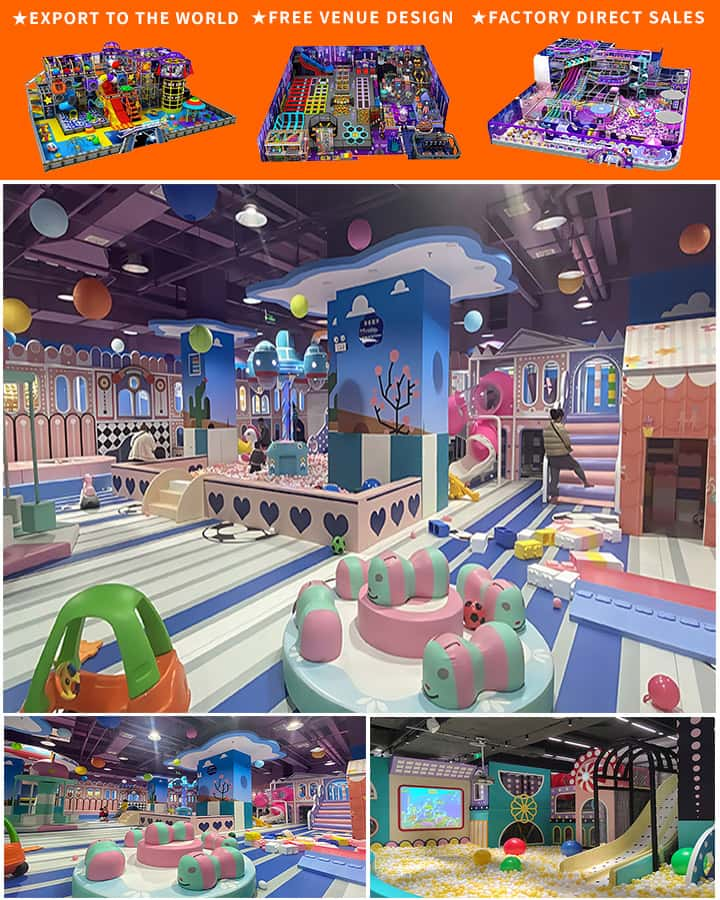In recent years, the demand for commercial soft play equipment in the UK has seen a significant rise. As indoor entertainment gains popularity among families and businesses alike, the market for soft play areas has expanded considerably. This article aims to delve into the various aspects that have contributed to this growth and explore what makes commercial soft play equipment a vital component of the UK’s leisure industry.
The Appeal of Indoor Entertainment
One of the primary reasons for the increased demand for commercial soft play equipment is the growing need for indoor entertainment options. Regardless of weather conditions, parents and guardians are constantly seeking safe, engaging, and enjoyable activities for their children. Soft play centres provide an ideal solution by offering a controlled environment where kids can play, learn, and develop essential motor skills.
Additionally, indoor play areas often feature a variety of attractions such as ball pits, slides, climbing frames, and interactive games, ensuring that children remain entertained for hours. These facilities also offer a sense of security and peace of mind to parents, as they are typically staffed by trained professionals who supervise the children.
Economic Benefits
From an economic standpoint, investing in commercial soft play equipment can be highly lucrative. With the right marketing strategies and location, a soft play centre can attract a steady stream of customers. The initial investment in high-quality equipment may seem substantial, but it pays off in the long run due to the durability and low maintenance costs of most modern soft play installations.

Moreover, soft play centres often generate additional revenue through the sale of food, drinks, and merchandise. Many facilities also offer birthday party packages and group event bookings, further diversifying their income streams. This multifaceted approach ensures financial stability and growth potential for business owners.
Safety and Compliance
Safety is paramount in any commercial soft play setup. Reputable suppliers in the UK adhere to stringent safety standards and regulations, ensuring that all equipment meets necessary health and safety criteria. This includes using non-toxic materials, ensuring structural integrity, and following guidelines set by organizations such as the European Committee for Standardization (CEN). Regular inspections and maintenance are also essential to uphold safety standards and prevent accidents.
Businesses must also comply with local fire safety regulations and obtain necessary permits before operating. By prioritizing safety and adhering to compliance standards, operators can build trust with their customers and mitigate risks associated with liability claims.
Technological Integration
Advancements in technology have also played a significant role in enhancing the appeal of commercial soft play equipment. Modern installations often incorporate interactive elements such as touch screens, digital scoring systems, and augmented reality features. These technologies not only enrich the play experience but also provide educational content that promotes learning and development.
For instance, some soft play areas include sensory elements like light-up features and sound effects, which are particularly beneficial for children with sensory processing needs. The integration of technology thus broadens the appeal of soft play centres to a wider demographic, including children with special needs.
Environmental Considerations
Sustainability is an increasingly important factor for businesses worldwide, and the soft play industry is no exception. Many manufacturers in the UK are now producing eco-friendly soft play equipment made from recyclable or biodegradable materials. These environmentally conscious choices help reduce the carbon footprint of these facilities and align with the values of eco-minded consumers.
Additionally, energy-efficient lighting and heating systems are being incorporated into soft play centres to minimize energy consumption. By adopting sustainable practices, businesses can contribute to environmental conservation while also promoting themselves as socially responsible entities.
Conclusion
The market for commercial soft play equipment in the UK continues to thrive due to the rising demand for indoor entertainment, economic benefits, safety standards, technological advancements, and environmental considerations. As more businesses recognize the potential of this sector, the future looks promising for both entrepreneurs and families seeking fun and safe play environments for children. With continued innovation and a commitment to excellence, commercial soft play centres will undoubtedly remain a cornerstone of the UK’s leisure industry.




